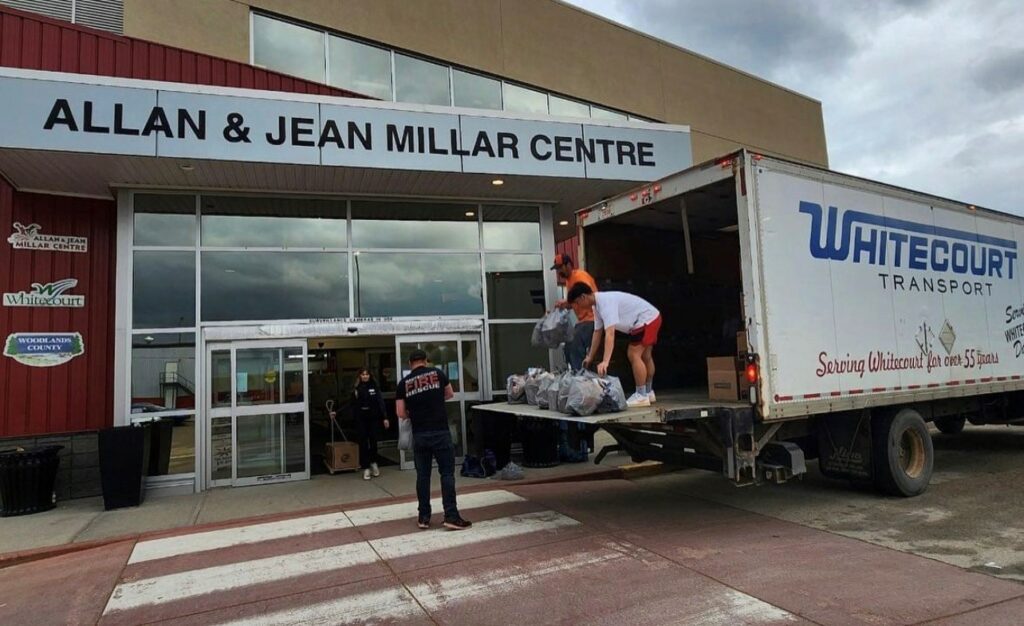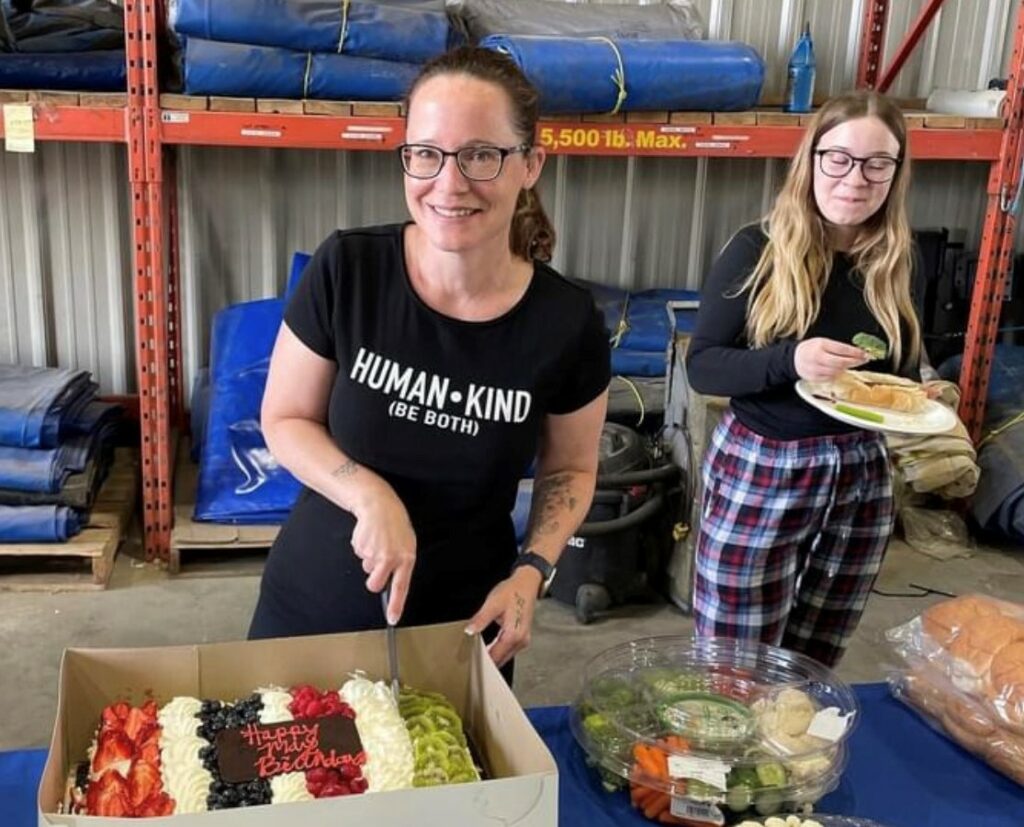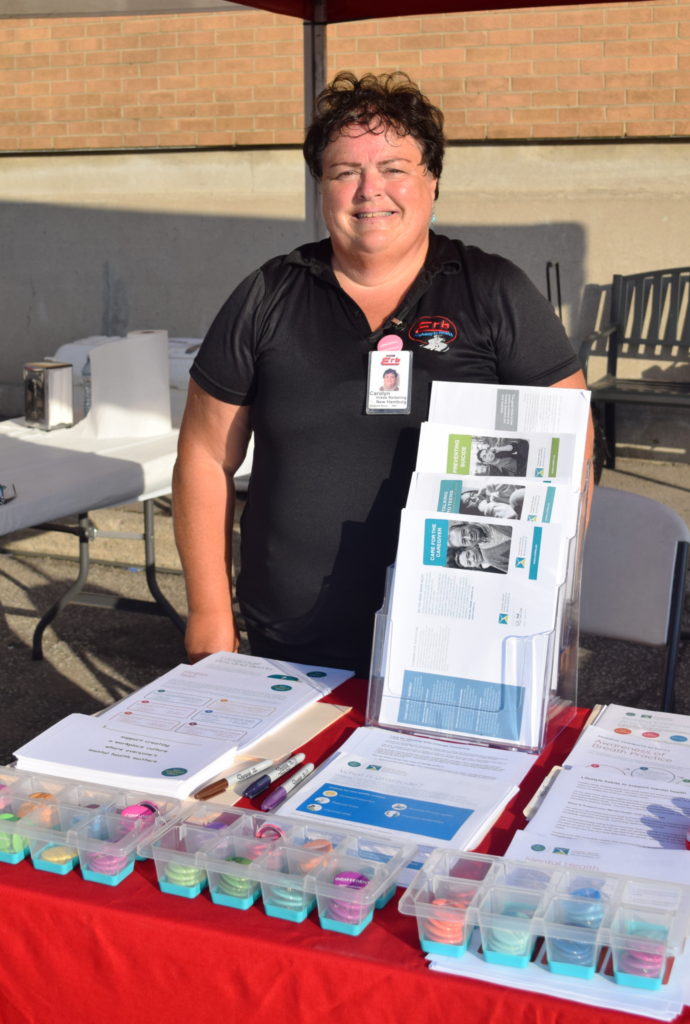Mental health a growing focus in trucking’s health and wellness programs
Employee health and wellness programs have been on the trucking industry’s radar for some time. However, fleets are focusing evermore resources on mental health, in part to address challenges that emerged or worsened during the pandemic.
“Employees’ expectations of their employers to take a more active role in their health and wellness, beyond just the day-to-day typical employment experiences, has been growing significantly,” adds Ken Johnston, chief human resources officer at Purolator.
The courier saw demands on its employee assistance program (EAP) increase 60-70% between 2018 and 2021. As mental health services declined during the pandemic, the need was clearly rising. “[This] is when we really started our big push into mental health,” he says.

Jeff Rosnau, CEO of Alberta-based Whitecourt Transport, says that the transportation industry was late to add mental health to its priorities. But even though the industry can suffer from a “tough guy image”, everyone needs human contact and to feel like somebody cares, he says.
It’s why in addition to introducing online resources and EAP support, the fleet is taking advantage of its smaller size to ensure a “high-touch” system where managers regularly interact with employees, Rosnau says.
Mental health first aid
Purolator has gone so far as to mandate mental health awareness training for all employees, teaching them how to manage their own mental health and support others. Mental Health First Aid training has been completed by 160 people who are ready to assist co-workers in cases of severe mental health challenges. By the end of the year, the number is expected to rise to 400 people.
“[This] creates a fluency and understanding as to what types of mental health issues can arise in the workplace and how, as leaders, we can be there to support employees, whether that means providing them with access to resources, providing them with time off, providing them with supports for things that may be going on outside of the workplace that’s driving issues for them in the workplace,” Johnston says.

The Erb Group introduced mandatory mental health First Aid training for managers as early as 2017, says Carolyn Vokes Reibeling, the fleet’s senior human resources administrator and wellness coordinator.
Other mental health initiatives in the company include sharing awareness materials and tips through newsletters and internal platforms, as well as offering counselling services through its EAP.
Because poor sleep is linked to higher risks of developing mental illnesses, Erb also launched a company-wide seven-day sleep challenge. Employees were given sleep trackers to pay more attention to their sleep routines and qualities.
Talking about mental health
It has also supported open dialogues around mental health, promoting Bell’s Let’s Talk Day since 2014, and other campaigns such as National Mental Health Week and the Canadian Mental Health Association’s “Not Myself Today” campaign.
“That alleviates the stigma of mental health and promotes a conversation among employees,” Vokes Reibeling says.

But not every industry interaction is a positive one. Trucking HR Canada says levels of racial-based harassment and violence are higher in transportation than other industries, and that can have a significant impact on mental health.
“This is why employers can’t overlook the incidents of workplace harassment and violence. There has to be ‘intolerance of intolerance,’” Rosnau says, adding that his fleet has gone so far as firing some of its customers after learning its drivers were subjected to racist behaviors at those locations.
“I really preach to our management team, ‘You meet people where they are’. You have to have some emotional intelligence, some level of understanding of what people might be going through, based on their experience, how they got here, you know, what their community life is like,” he says. “I’m a big believer that everybody should try and walk a mile in everybody else’s shoes before they do something.”
Purolator’s Johnston agrees, adding that this is why Purolator introduced required mandatory diversity, equity and inclusion training for all employees, in addition to workplace harassment and violence training.

Connecting drivers, creating communities
It’s not the only social factor being addressed.
Rosenau says in the trucking industry, where drivers can be isolated, it’s essential to address the challenges that come with long hours alone on the road.
One of the challenges is that many drivers struggle to connect with their co-workers. For this reason, Whitecourt has focused some of its efforts on extending activities and initiatives like picnics, campouts, dinners and barbecues, fishing days, and ski days.
“You have to continuously try to create opportunities for people to come together,” Rosnau says of the shared experiences, adding that such an approach helps create camaraderie, builds a support system within the organization, and increases employee engagement.
It is important to acknowledge how overall “chaos” in the world affects everyone, he adds.
To address that, Whitecourt has actively engaged in community opportunities, encouraging employees to participate in volunteer work with co-workers or family members. For example, during wildfires in Alberta last year, the company used its cross-dock to move goods for the food bank and helped displaced people.
“It is a great way to make individuals feel good, but also come together and feel good about the effort made by our company,” says Rosnau. “That’s just had an awesome effect.”

Physical health programs
Other initiatives continue to address physical health, of course.
The Erb Group, for example, provides corporate gym membership for all employees. They also have access to a multi-module Highway to Health program with educational materials on various health-related topics, along with a health and wellness strategic plan developed with the University of Guelph, Vokes Reibeling says.
Company-paid dental and medical care, that extends to employees’ families, is also available from the first day of full-time employment.
Some of the initiatives at Whitecourt include weekly in-office yoga classes, access to Telus health assessments, and family gym nights.
Purolator plans to launch voluntary biometric screening for employees early next year.
“We’ll be offering employees the opportunity to take a simple blood test, and [they] will be provided with markers on whether they have a higher chance of diabetes, hypertension, or other risk factors like heart disease,” Johnston says, adding that employees will be provided access to virtual care, doctors and nurses to help begin a “medical wellness” journey.
The latter issue is particularly important since nearly 40% of Canadians don’t have access to a family doctor, he says. It’s one of the ways Purolator wants to address the needs of its diverse employee population, particularly in “economically challenged” areas where access to healthcare services can be even more challenging.
Have your say
This is a moderated forum. Comments will no longer be published unless they are accompanied by a first and last name and a verifiable email address. (Today's Trucking will not publish or share the email address.) Profane language and content deemed to be libelous, racist, or threatening in nature will not be published under any circumstances.